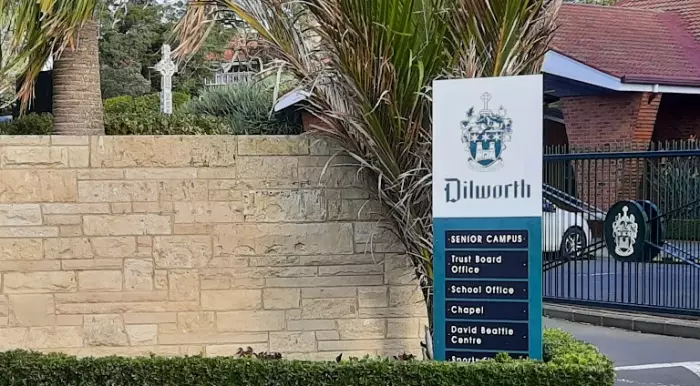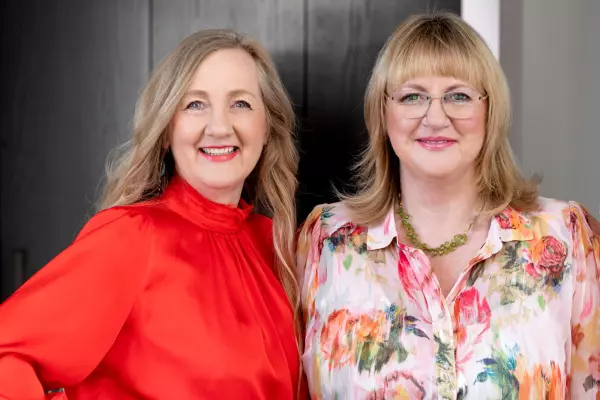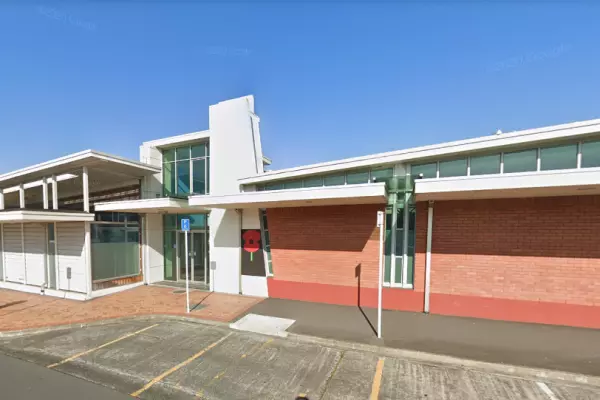Dilworth is a number of things: a school, a charity, a philanthropist’s legacy, the subject of a sexual abuse scandal and fabulously wealthy. Last year, its net assets passed the $1 billion mark, making it worth three times more than the nation’s next richest school, King’s College.
Its board’s stated mission is “to fulfil the terms of the Will of James Dilworth to support, educate and train as many boys as possible from disadvantaged circumstances to reach and maintain their full potential and become ‘good and useful members of Society’.”
But considering the school’s vast wealth, is it doing what is ‘possible’ or just passable? We dig into Dilworth’s finances to try to answer that question.
The base of Dilworth’s wealth is in its property. The school site and equipment are worth $165 million, less than one-fifth of its total property portfolio.
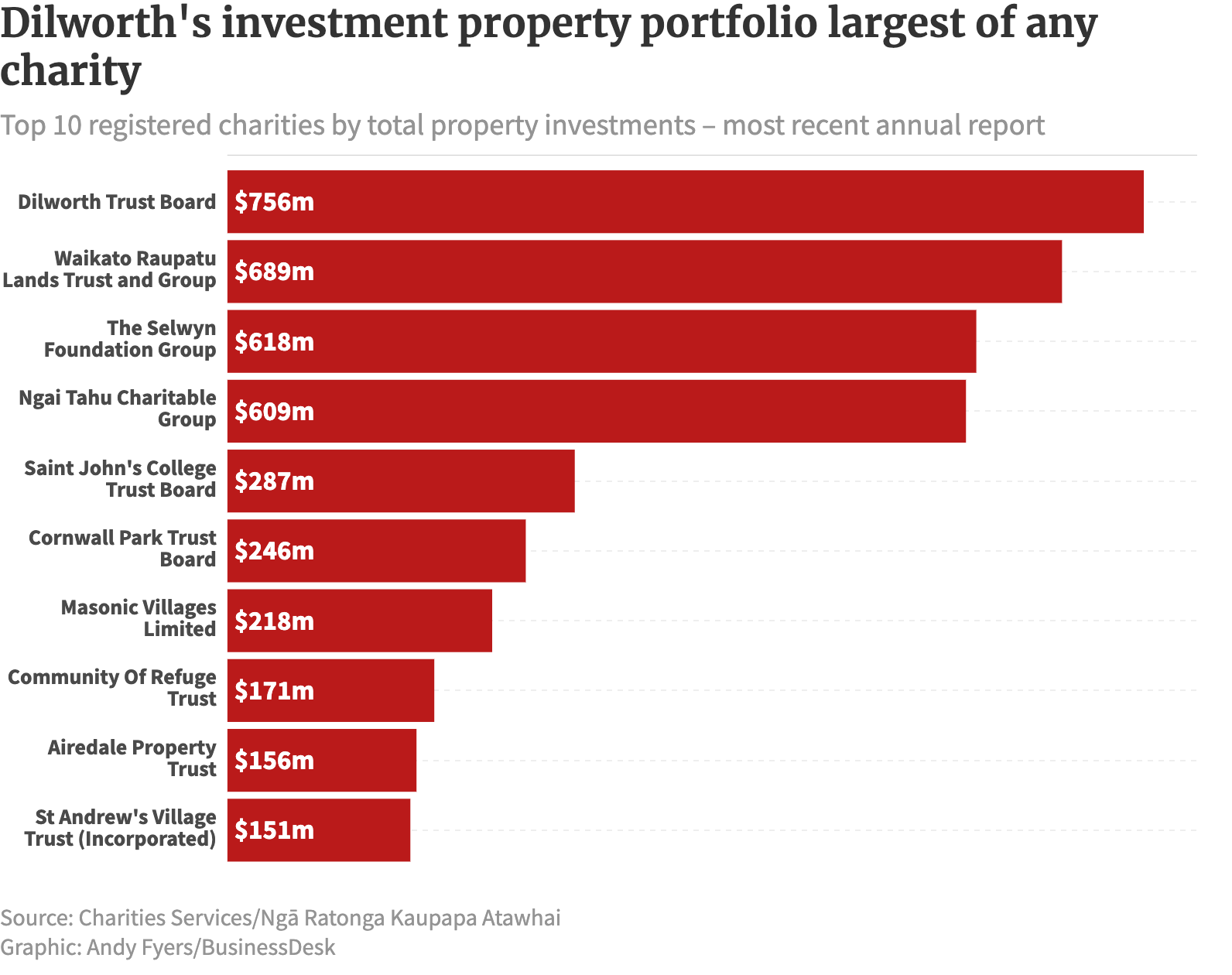
It holds $756m in investment property, the largest amount of any NZ charity.
In total, it holds $886m in investments, the second largest of any NZ charity.
“The significant growth in the fund in recent years has been due to favourable macroeconomic factors, including low-interest rates and buoyant capital and real estate markets,” explained the school in the most recent annual report for the 12 months to Jan 31, 2021.
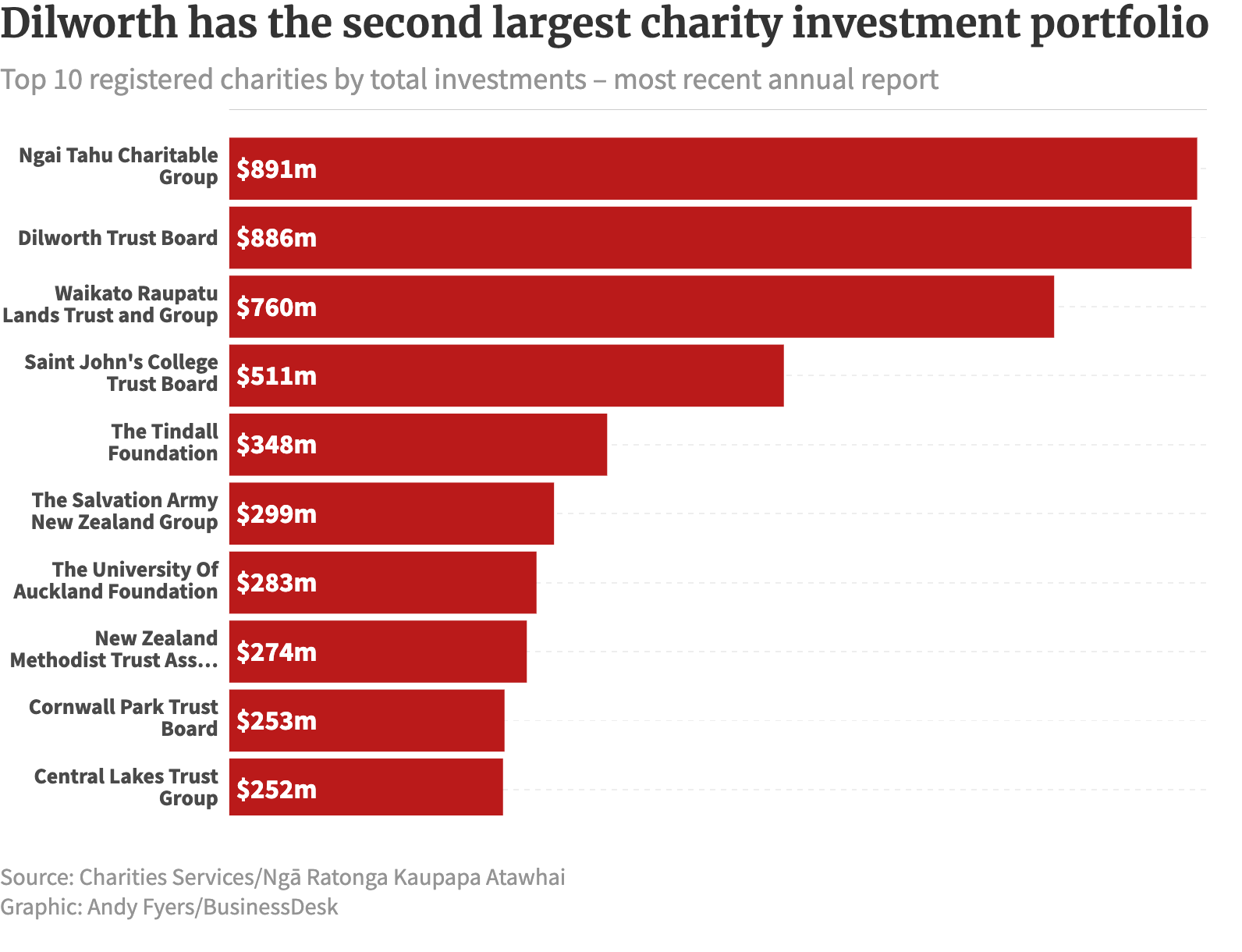
At the time of the report, the school recorded substantial unrealised gains across their investments, a $64m jump in one year, which they attribute to their “high performing property portfolio”. Despite a recent dip in the market, the House Price Index is up more than 20% since then, meaning their portfolio has likely continued to grow in value.
This has enabled them to run up a surplus of $58.8m, a 20% increase on the year prior and, since 2008, their second-highest surplus, after $80m in 2018.
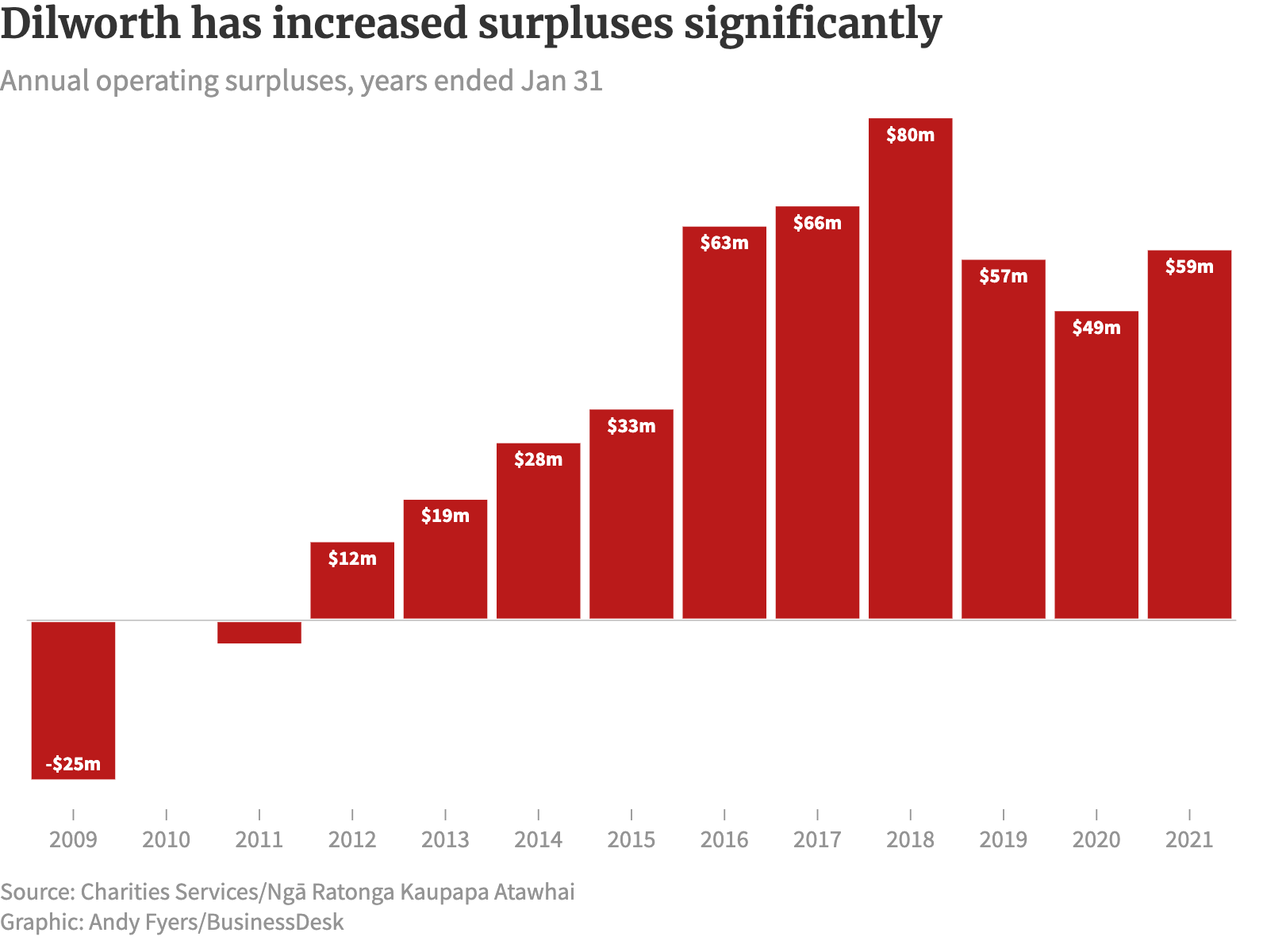
But it’s not just the increase in value, its land holdings gave Dilworth $30.2m of rental income to fund educational operations.
During its last reported year, the 12 months to January 2021, it cost $27.6m to run the school of 544 students and 212 staff across three campuses.
Own this town
Dilworth owns an array of properties in Auckland, primarily near the school site in Epsom. There are 26 properties just on Great South Road, including seven motels or motor lodges, a BMW dealership and a veterinary clinic.
Of the many car dealerships in that area, 13 of the sites are owned by Dilworth.
Other commercial property is owned in Newmarket, Remuera and Manukau, including a petrol station and a building currently rented by a legal centre and a yoga studio.
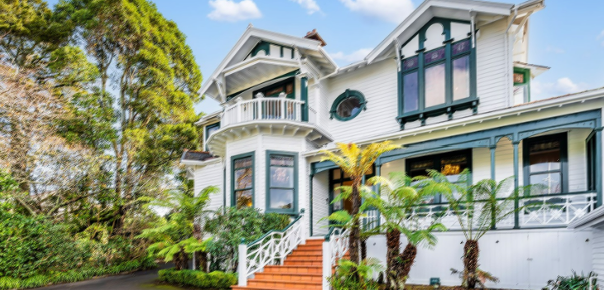 39 Market Road, Remuera, Photo: Ray White
39 Market Road, Remuera, Photo: Ray WhiteOne of the most eye-catching properties is on 39 Market Road, Remuera. The former four-star Aachen House Boutique hotel is currently on the market and valued at $7.3m.
This is probably the school’s most singularly valuable asset. However, in central Wellington, they own 57 properties within the same upmarket Chews Lane apartment building, that includes a private 16-seat movie theatre. These must be lucrative for Dilworth, with a two-bedroom apartment currently available for $1,500 per week.
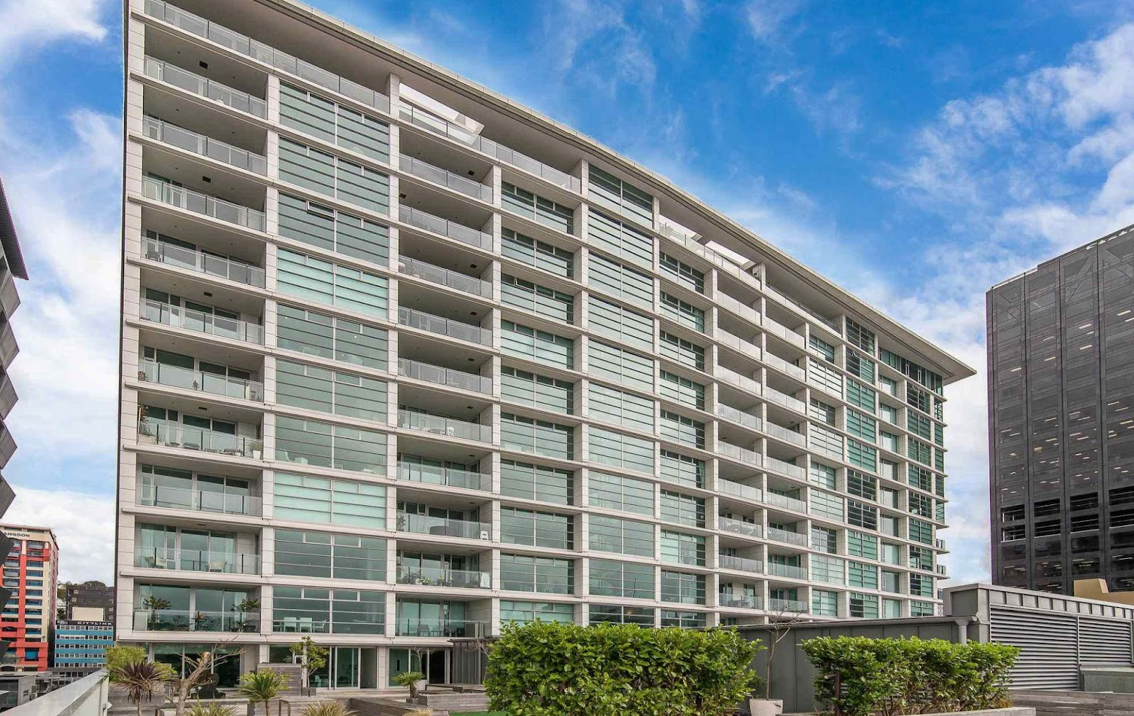 9 Chews Lane, Wellington. Picture: Ray White
9 Chews Lane, Wellington. Picture: Ray WhiteDebt
Despite this huge portfolio generating millions in passive income every year, Dilworth decided to use debt finance for the first time in its history. This was a key part of the “new commercial strategies” implemented by the inaugural CEO, Ewen Anderson, to “help drive improved returns”.
Andersen was appointed in March 2020, just a few days before the first covid-19 lockdown. He was previously the Investment Director at the NEXT Foundation – a charitable education fund but his 25-year career ranges from multinational corporates to startups including Netlogix, Fletcher Building and Carter Holt Harvey.
The $50m loan he initiated was provided by the Industrial and Commercial Bank of China and was used for a “major acquisition”.
Other costs on the horizon?
Over 130 survivors have now signed up to join the Dilworth Class Action, which may only be a portion of the survivors who suffered sexual abuse while they attended Dilworth School.
The school’s redress programme has suggested limiting the compensation to $200,000 per individual. However, a recent survey of claimants overwhelmingly rejected this sum and said it was inappropriate for Dilworth to set any cap, particularly before the end of the independent inquiry.
Dilworth has also proposed opening a girls' school on a separate campus, with plans to take in 50 students in 2025. Enrollment would be staggered to eventually provide fully-funded boarding school education to 265 girls from years 7 to 13.
If the same $35,000 scholarships were provided to girls this would put the annual operational cost at around $9.3m.
The long-running plan was formally launched in 2019 to an audience of 800 women business leaders at the On Being Bold Conference.
In 2018, the school said it had been advised that it can't use the Dilworth legacy to directly fund a girls' school.
Dilworth, therefore, isn’t relying on their asset wealth however but rather asking for donations to build the new school and boarding facilities as well as to cover the girls’ education. Donations of around $350m were estimated to be required to establish the campus.
The school’s board expenses have come under question as well. Its annual report shows that six trustees received $561,875 in remuneration, an average of $93,646 each. Aaron Snodgrass, as chair, is likely to receive more than that.
This far exceeds other schools. Auckland Grammar pays, on average, $6,435 per trustee, St Peter’s $11,833 and Kristin School, Diocesan School for Girls and St Cuthbert's College do not pay their board members.
As well as personal remuneration, expenses incurred by the trust board also increased by $800,000 to $5.5m. This “reflected salary increases to support the new more commercial strategic plan, interest expense and professional fees.”
Spending questioned
Neil Harding, survivor and Dilworth class action representative, said: “We would question how the Dilworth Trust Board has calculated how much each survivor’s pain and suffering is worth as a result of the sexual abuse they experienced while attending Dilworth, given each trustee of the Dilworth Trust Board is paid over $90,000 each and every year.”
A spokesperson for Dilworth said: "The Dilworth Trust Board has launched an Independent Inquiry into the nature and extent of abuse at Dilworth School. In addition, the Board has launched a Wellness Unit which is currently providing Old Boy survivors with support, referrals and access to counselling and other support services.
"The Board will also soon launch an independent Redress Programme for Old Boy survivors. We are in the process of finalising this programme, including the appointment of the fully independent Panel for the Redress Programme.
"To date, the feedback provided by Old Boy survivors and their representatives has changed and enhanced the Redress Programme Terms of Reference. Their feedback was equally valued in the development of the Independent Inquiry including the appointment of the Inquirers for this programme.
"To safeguard and preserve the independence of these programmes, Aaron Snodgrass will not be doing any media interviews or providing written commentary until after the Independent Inquiry has produced its report."
Additional reporting by Greg Hurrell.


